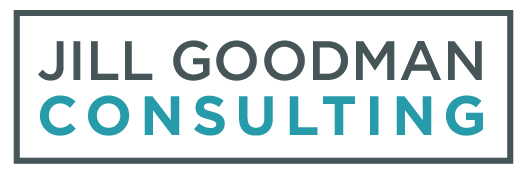Gen Z and the New School Community
With the pandemic behind us, many school leaders have put “re-build community” on the top of their next-big-thing-to-do list. I’ve written about the importance of community at schools for enrollment retention, development efforts, and word-of-mouth marketing. But, I see the traditional ways schools built a sense of community may not work anymore.
I’ll use my own experience as an example, but I’ve seen the same thing repeatedly happen in schools nationwide. I started to volunteer at my children’s school 25 years ago. I was in good company as there were a lot of parents (almost exclusively moms) who once worked outside the home but now did not. We were highly educated people with mental energy, organizational talent, and too much time on our hands. The Parent Association filled those needs and utilized the many skills within the parent population to raise money, do nice things for the faculty, chaperone field trips, and organize random events that kept us busy, feeling productive, and generally liked among the staff and students. We were co-workers in parenting and school life. We formed our own community in the same way one does at work.
We stayed in our lane and didn’t spend much time wondering what was happening in the classroom. Although, occasionally, an issue arose among parents that came to my attention as a Parent Association leader. Something like a uniform change or kids dehydrating on the playground since the water fountain broke. At those times, I felt like a union representative and wondered why parents felt like they could not speak directly to the administration. I realized our lane was on another highway entirely, and I was the bridge.
Ten years later, I was an administrator at another school and saw that a societal shift was in motion. Most parents now worked outside the home and were less interested in volunteering at the school. When they could be convinced to volunteer, it was for something specific that only they could help with (architecture, graphic design, medical advising, etc.). In the limited time they had to give, they wanted to do something impactful and relevant to their vocation or interest, not work for the Parents Association and its activities.
Fast forward to today, and as a consultant, school leaders are struggling to figure out how to help families at their school form a community, particularly with so many new families that may have arrived during the pandemic. Volunteer interests among parents have changed again. Parents share their student’s interests and want to be where their student is. They want to volunteer in the cafeteria, the classroom, and the sports field because those are the paths they see to help the school while helping their child. Activities that are not directly related to their student are less interesting to parents.
All of this begs the question, why? Why do parents want to be where their kids are? Is it only about shifting work patterns, some parental post-pandemic PTSD, or are we missing something? Yes, we are. We are missing an understanding of Gen Z, the fulcrum on which the new formation of the community balances.
Roberta Katz, Sarah Ogilvie, Jane Shaw, and Linda Woodward spent three years researching Gen Zers, generally defined as people born between 1997 and 2012. The research resulted in the book, Gen Z, Explained: The Art of Living in a Digital Age. The book is fascinating and explains how Gen Z is different from any other generation to come before them in several ways. Here are my four takeaways about how Gen Zers think and feel. Then we can consider how these can drive the change in the ways schools build and form a community.
1. Gen Zers are more connected to others than any generation prior. They do not remember a time when they could not consult the internet for information, understanding, and community. Now they have that power in their hand, always with them, always connected. They are also more connected to their parents than any generation before, with some texting with their parents multiple times a day.
2. The internet allows them to connect with those that share their identity. Thus, articulating their identity and being completely authentic in forming their identity is deeply important to them and helps them find their people and place in the world. Therefore, they are adamant about equity, inclusion, justice, and belonging. They believe everyone should be able to freely identify with those that share their identity.
3. The entire world is their world. Prior generations prioritized their immediate world of neighborhood, school, and town. Kids were rarely concerned about or personally impacted by anything that happened much beyond that. But, Gen Zers believe the entire world is their world. They know people all over the world through their digital connections. They feel responsible for all people on the planet and want to right the wrongs of generations that came before them. They feel angry that they must clean up the mess but hope they can.
4. They are less naïve and do not trust blindly. With all that information, connectedness, and responsibility, they know a lot. They know that people have been lied to by governments, organizations, corporations, and institutions. Their school and school leaders must tell them the truth and acknowledge their body of knowledge. They want to be invited into conversations at school about important issues.
By knowing this about Gen Z, recent parent survey results start making more sense. Parents say they want:
To meet the parents of their student’s classmates
To do meaningful things with other families on weekends and evenings (things like community service and outdoor activities)
To support the interests of their student (arts, athletics, clubs, affinity groups)
To support their child in forming their identity and finding people who share that identity within the school
If you find that parent engagement is not what it once was and the activities that were once popular you now struggle to maintain, think about the priorities of your students and how they likely parallel those of their parents. I am happy to talk with you about how you can revitalize, re-engage, or otherwise reinvent your community in the wake of the pandemic. It could make the difference between your school surviving or thriving.
The author, Jill Goodman, is a consultant working with independent school leaders to advance their school’s mission, enhance their processes, and bolster their skills. Learn more about all services here.
Image credit: gradyreeseE+/via Getty Images



